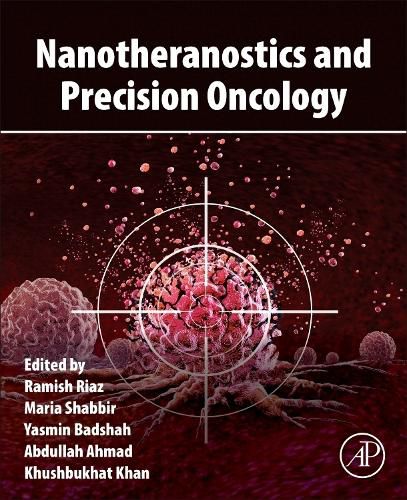Readings Newsletter
Become a Readings Member to make your shopping experience even easier.
Sign in or sign up for free!
You’re not far away from qualifying for FREE standard shipping within Australia
You’ve qualified for FREE standard shipping within Australia
The cart is loading…






Nanotheranostics and Precision Oncology delves into the merging fields of cancer research and nanotechnology, offering a thorough review of the latest advancements in precision oncology. It begins with an exploration of cancer biology, illuminating the genetic foundations of oncogenesis alongside the cellular and molecular mechanisms driving cancer progression, metastasis, and drug resistance. This resistance remains the foremost challenge in cancer care. Across 28 chapters, the book addresses precision medicine's role in overcoming drug resistance, the importance of biomarkers, the interpretation of genetic analyses, and the shift toward personalized oncology.
In addition, the book examines nanotheranostics' applications and mechanisms in cancer diagnosis and treatment, integrating them with precision oncology. It outlines the design, mechanism, and impact of nanoprecision medicine in cancer management. The final section considers the future of nanotheranostics in precision oncology and the challenges of translating these innovations from research to clinical practice. This comprehensive guide serves students, clinicians, researchers, and the pharmaceutical industry involved in nanomedicine, oncology, molecular biology, and precision medicine.
$9.00 standard shipping within Australia
FREE standard shipping within Australia for orders over $100.00
Express & International shipping calculated at checkout
Stock availability can be subject to change without notice. We recommend calling the shop or contacting our online team to check availability of low stock items. Please see our Shopping Online page for more details.
Nanotheranostics and Precision Oncology delves into the merging fields of cancer research and nanotechnology, offering a thorough review of the latest advancements in precision oncology. It begins with an exploration of cancer biology, illuminating the genetic foundations of oncogenesis alongside the cellular and molecular mechanisms driving cancer progression, metastasis, and drug resistance. This resistance remains the foremost challenge in cancer care. Across 28 chapters, the book addresses precision medicine's role in overcoming drug resistance, the importance of biomarkers, the interpretation of genetic analyses, and the shift toward personalized oncology.
In addition, the book examines nanotheranostics' applications and mechanisms in cancer diagnosis and treatment, integrating them with precision oncology. It outlines the design, mechanism, and impact of nanoprecision medicine in cancer management. The final section considers the future of nanotheranostics in precision oncology and the challenges of translating these innovations from research to clinical practice. This comprehensive guide serves students, clinicians, researchers, and the pharmaceutical industry involved in nanomedicine, oncology, molecular biology, and precision medicine.